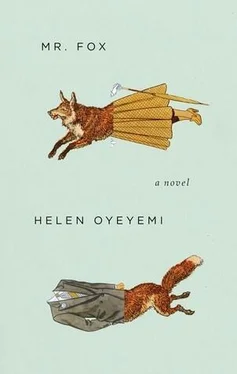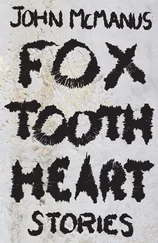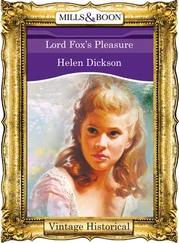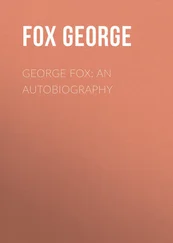Because her husband didn’t want her to know that he’d spent her parents’ life savings. But Dad—
Yes, Miel?
He shot their children, too. And her parents.
I know. But I didn’t ask you about them. Don’t answer questions you haven’t been asked.
My mother would tell him to stop it — I passed these stories on, with gruesome embellishments, to other kids at school, and their parents complained — but he said that the world was sick and that I should know I wasn’t safe in it. My mother told me not to listen to him, but it was impossible not to. I kicked open cubicle doors in public toilets, so expectant of discovering an abandoned corpse that for an instant I’d see one, slumped over the toilet bowl, her long hair falling into the water. I saw them in the dark, the girls, the women yet to be found. I counted their faces, gave them names and said the names, as if calling a class register. Here’s what I learnt from the clippings: that there is a pattern. These women had requested assistance. They’d told people: Someone is watching me, has been following me, has beaten me up before, has promised me he will kill me. They’d pointed their murderers out, and they had been told “It won’t happen,” or that nothing could be done, because of this and that, etc. I was jumpy in those days, expecting something terrible to happen to me at any moment, without knowing where it would happen to me, or why, or who would do it.
My father sent press clippings to me at school, from prison. As if to say, Your mother wasn’t the first and won’t be the last. Maybe I could have shown all the clippings to someone and somebody would have looked at his sanity again, tried to get him treatment. But that might have reduced his sentence, or they might have hospitalised him. My father, out in the world again — a thought I couldn’t think. Not ever.
A box arrived in the post, forwarded from the agency. I signed for it, and sat down on the sofa with it, afraid that it was something my father had sent to me. Then I reminded myself that his letter had come directly to me — he knew my address. Still, my hands shook as I unwrapped a brasshandled magnifying glass and a tiny book about half the size of my thumb. I turned the pages — there were only three, and each had a word written on it in a fine, light hand. Trying to breathe, I held the glass over each page and read:
You
didn’t
call. .
He’d included another card inside the box, allowing me the excuse of having lost the first one. He answered on the third ring, as if he’d been waiting.
“It’s me,” I said stupidly.
I thought he couldn’t hear me clearly, and was about to add, “It’s Mary Foxe,” but he spoke just a heartbeat before I did. “Are you seeing anyone?”
“No.”
“Will you see me?”
His voice in my ear. It did interesting things to me. It curved my back and parted my lips. I felt lazy and feline, and he wasn’t even in the room. “Yes. When?”
“I’m in town next week — I do a couple of days a week at a private practise.”
“Call me next week, then.”
“I will.” He paused. I paused.
“I’m sorry about your mother,” he said, at the same time as I said, “I’m sorry about your wife.”
I recovered first. “Thank you for saying that,” I said, without emphasis. He must have found one of those stupid and unnecessary “she isn’t doing too bad for a girl whose mother was murdered” articles. He’d have had to dig deep, though. It was such a long time ago.
“Likewise,” he said.
“I’m sorry I snooped.”
He made no reply. He’d already ended the call.
“Soon, then,” I told the dial tone.
I stopped talking to Jonas and Aunt Molly and Uncle Tom and Aunt Jane. It wasn’t easy. I missed them. Especially Jonas. I attended foam parties and tube parties and hedge and highway parties. I took every job my agent could get for me. People looked at my contact sheets and told me I was doing my best work yet. I couldn’t see what they meant — the pictures looked the same as always.
It was at another charity fund-raiser that I remembered where I had seen Daphne Fox. Light hummed in crystal chandeliers. Jonas, decadent Catholic that he was, would have loved the party. Men in dinner jackets and starched white collars, throats pulsing with laughter. Yards of oystercoloured silk, and diamonds, diamonds, garnets, rubies. One old man had a walking stick topped with an emerald the size of an egg. I holed myself up in a corner with a couple of girls I knew from jobs I’d done, and we listened to the speeches and stood there drinking and looking at everything through our sunglasses, waiting for something to happen. The room was in half-darkness, raked by a roving spotlight. Every now and again someone who had been only a silhouette suddenly transformed into a pillar of flashing jewels. I hadn’t thought to wear any jewellery, and when the spotlight finally fell on our group, I stepped out of it. It didn’t take much to make my head spin just then — the sudden change from blinding light to dusk made my hands clammy. That and the cough syrup and the cocktails and the wine. I excused myself and weaved out of the ballroom, towards the toilets; a crowd of women emerged and momentarily surrounded me. “Come back,” I wanted to tell them. “Don’t leave me alone in here.”
But they had, and I walked up the row of cubicles, kicking doors and watching the mirror while a tap dripped bleakly and Muzak floated in through the speakers. I kicked the last door open and clenched my jaw against a scream — the image of a dead woman flashed fiercely, just as it used to when I was eleven; exactly like that.
It was the same woman I conjured up each time, sprawled in the cubicle with wet, dangling hair, and that bashful, almost apologetic expression— Sorry about this . The face was Daphne Fox’s. That was my last clear impression for a while.
Some time went by. A night, a very late night, I think; streetlamps spiked the dark, and no one was out. Whatever I was doing, wherever I was, I was most aware of the grinding of my teeth — the sound and the feeling. The supple clicking was a comfort.
At first I was alone, then I was with S. J. Fox, at a restaurant — potted plants as tall as trees, fancy bread rolls, tapenade, and out of a window I saw Cleopatra’s Needle dividing the sky. I was very nervous. Close up his skin was weathered and held frown fractures so fine and deep that he seemed made of them. I still couldn’t guess how old he was. I didn’t listen too closely to what he was saying. His expressions changed suddenly and completely — a frown would chase a boyish grin midway through a sentence; not even my father had switched masks so quickly. And that was what all the expressions felt like — masks. I didn’t believe them. They were too thorough, too nuanced; they were never at odds with his subject matter. He probably had to be like this because of work — he had to show people what normal, balanced emotions looked like. But that’s just not how it happens. People move from comic to tragic with the remnants of a smile left on their lips. Natural expressions linger. There was someone behind all S.J.’s masks, someone who stared mockingly and dared me to say that I knew he was there. And that was the one I wanted to meet. The unprofessional.
It took a lot of concentration not to mention his wife. I’ve never met Daphne, but I’ve seen her in my head. .
We walked out of the restaurant and down the street, to the hotel he was staying in. His arm was around my waist. I moved deeper into the curve of his arm as he collected his messages at reception. In the lift he gently pushed me away and made me stand on my own, facing him. “You have a gap in your teeth,” he whispered, and he filled it with the tip of his tongue. He looked at me as he did it, and I looked at him. This was no silver-screen kiss, we were in each other’s wide-open eyes, and I dared not flinch. It was a long way up — the lift kept stopping, and other people entered it and left — I couldn’t see them, only felt them, like clouds drifting around us.
Читать дальше












